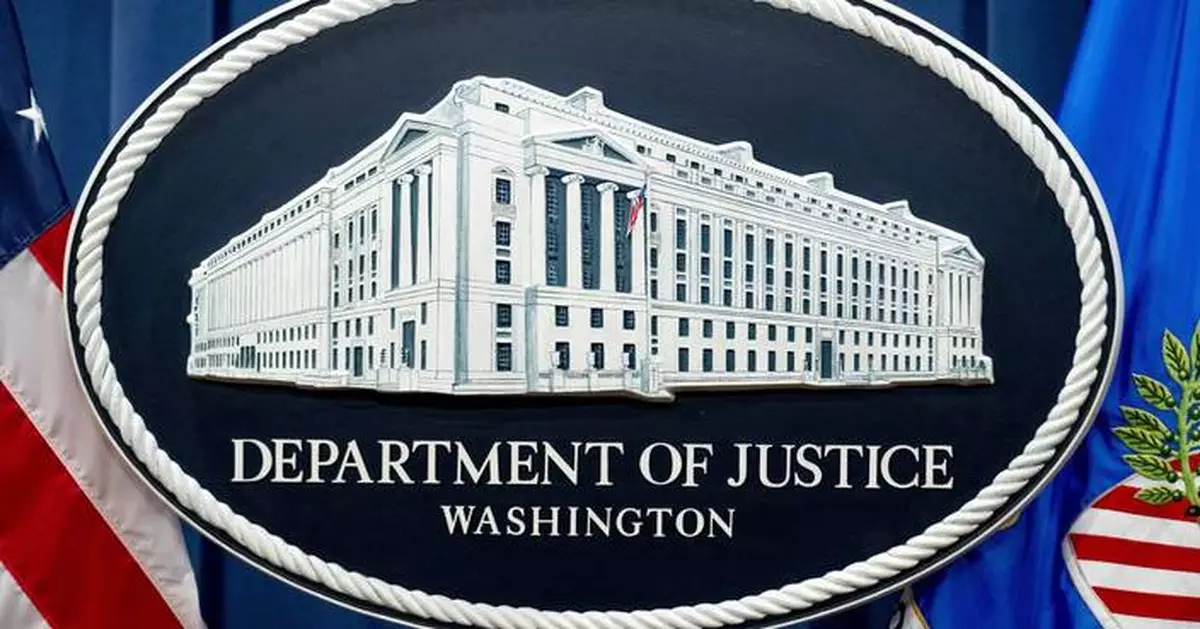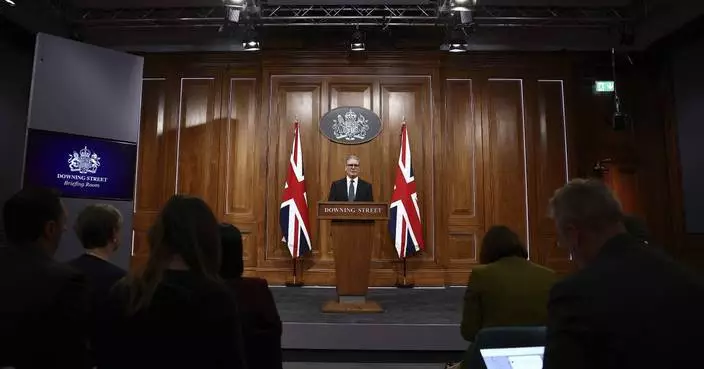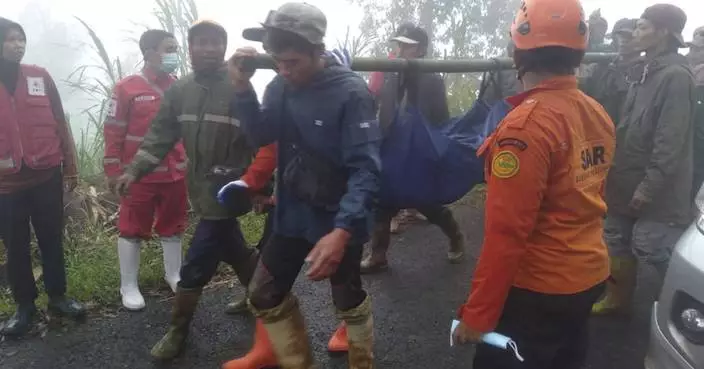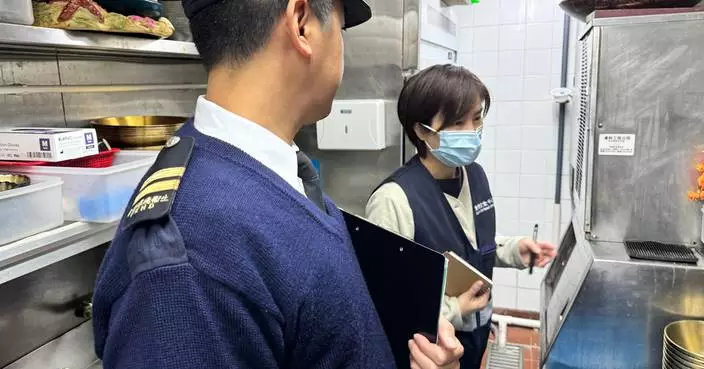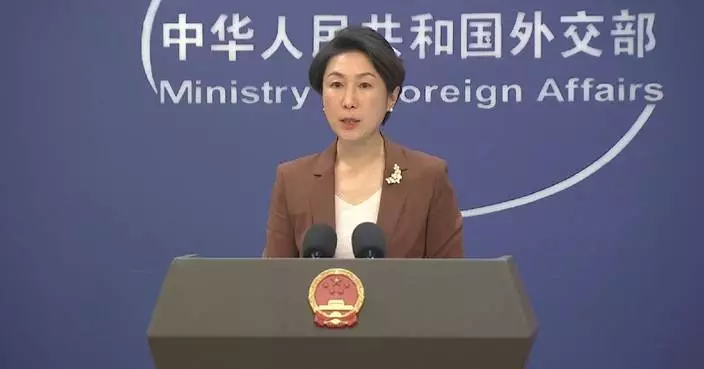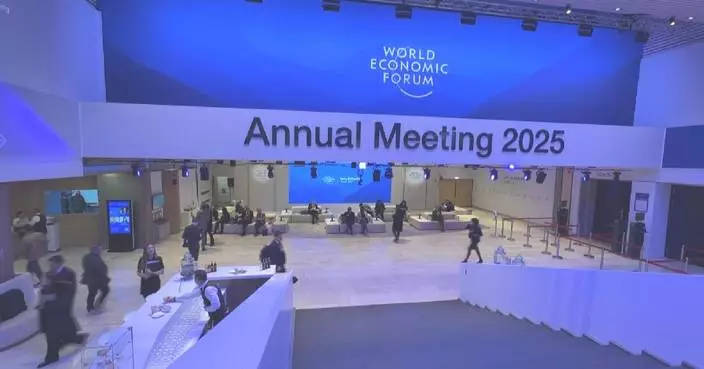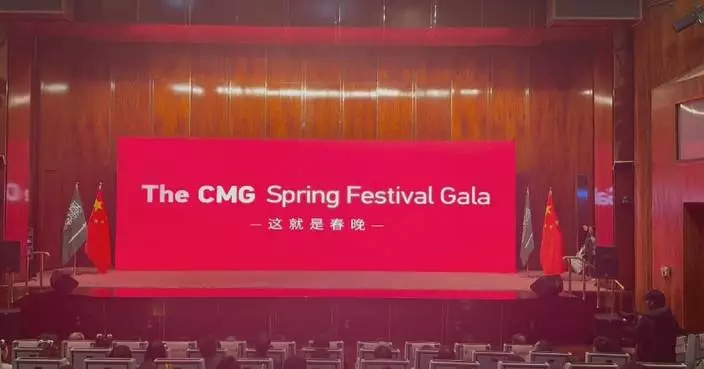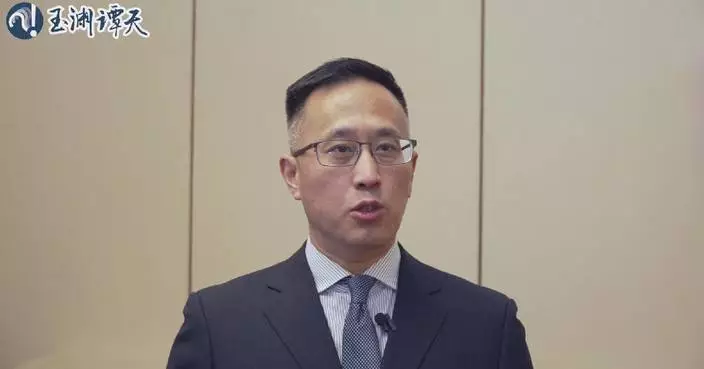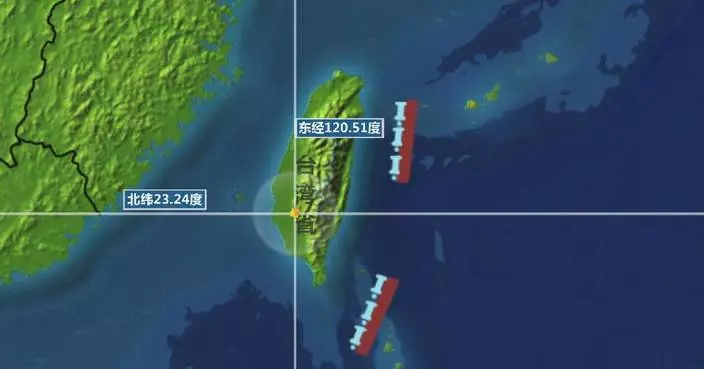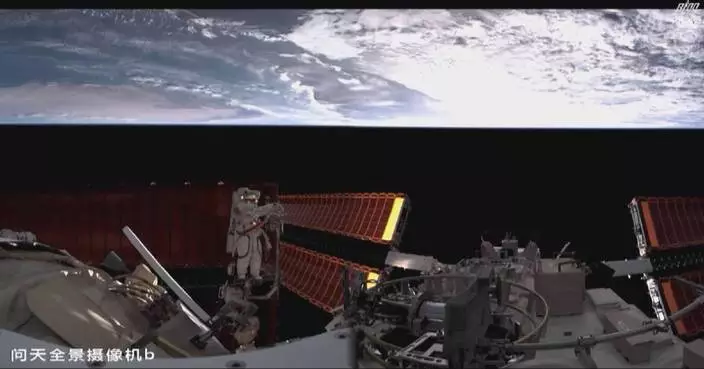WASHINGTON (AP) — A former CIA employee and senior official at the National Security Council has been charged with serving as a secret agent for South Korea's intelligence service, the U.S. Justice Department said.
Sue Mi Terry accepted luxury goods, including fancy handbags, and expensive dinners at sushi restaurants in exchange for advocating South Korean government positions during media appearances, sharing nonpublic information with intelligence officers and facilitating access for South Korean officials to U.S. government officials, according to an indictment filed in federal court in Manhattan.
She also admitted to the FBI that she served as a source of information for South Korean intelligence, including by passing handwritten notes from an off-the-record June 2022 meeting that she participated in with Secretary of State Antony Blinken about U.S. government policy toward North Korea, the indictment says.
Prosecutors say South Korean intelligence officers also covertly paid her more than $37,000 for a public policy program that Terry controlled that was focused on Korean affairs.
South Korea’s National Intelligence Service, its main spy agency, said Wednesday that intelligence authorities in South Korea and the U.S. are closely communicating over the case. South Korea’s Foreign Ministry separately said it was not appropriate to comment on a case that is under judicial proceedings in a foreign country.
The conduct at issue occurred in the years after Terry left the U.S. government and worked at think tanks, where she became a prominent public policy voice on foreign affairs.
Lee Wolosky, a lawyer for Terry, said in a statement that the “allegations are unfounded and distort the work of a scholar and news analyst known for her independence and years of service to the United States.”
He said she had not held a security clearance for more than a decade and her views have been consistent.
“In fact, she was a harsh critic of the South Korean government during times this indictment alleges that she was acting on its behalf,” he said. “Once the facts are made clear it will be evident the government made a significant mistake.”
Terry served in the government from 2001 to 2011, first as a CIA analyst and later as the deputy national intelligence officer for East Asia at the National Intelligence Council, before working for think tanks, including the Council on Foreign Relations.
Prosecutors say Terry never registered with the Justice Department as a foreign agent.
On disclosure forms filed with the House of Representatives, where she testified at least three times between 2016 and 2022, she said that she was not an “active registrant” but also never disclosed her covert work with South Korea, preventing Congress from having “the opportunity to fairly evaluate Terry's testimony in light of her longstanding efforts” for the government, the indictment says.
Associated Press writer Hyung-jin Kim in Seoul, South Korea, contributed to this report.
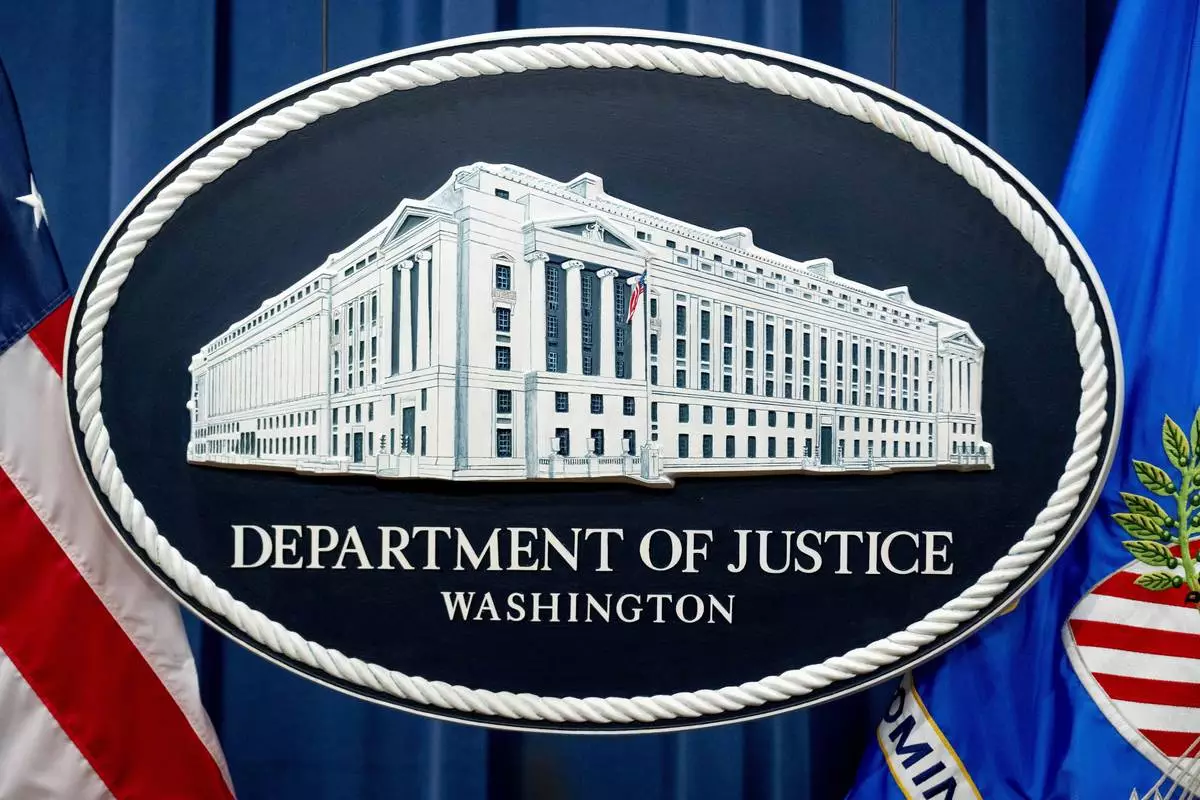
FILE - A U.S. Department of Justice sign is seen, Nov. 18, 2022, in Washington. The U.S. Justice Department says a former CIA employee and senior official at the National Security Council has been charged with serving as a secret agent for South Korea’s intelligence service. (AP Photo/Andrew Harnik, File)
WASHINGTON (AP) — U.S. President Donald Trump used one of the flurry of executive actions that he issued on his first day back in the White House to begin the process of withdrawing the U.S. from the World Health Organization for the second time in less than five years — a move many scientists fear could roll back decadeslong gains made in fighting infectious diseases like AIDS, malaria and tuberculosis.
Experts have also cautioned that withdrawing from the organization could weaken the world’s defenses against dangerous new outbreaks capable of triggering pandemics.
Here’s a look at what Trump’s decision means:
During the first Oval Office appearance of his second term, Trump signed an executive order detailing how the withdrawal process might begin.
“Ooh," Trump exclaimed as he was handed the action to sign. "That’s a big one!”
His move calls for pausing the future transfer of U.S. government funds to the organization, recalling and reassigning federal personnel and contractors working with WHO and calls on officials to “identify credible and transparent United States and international partners to assume necessary activities previously undertaken by” WHO.
This isn’t the first time Trump has tried to sever ties with WHO. In July 2020, several months after WHO declared COVID-19 to be a pandemic and as cases surged globally, Trump’s administration officially notified U.N. Secretary-General Antonio Guterres that the U.S. was planning to pull out of WHO, suspending funding to the agency.
President Joe Biden reversed Trump’s decision on his first day in office in January 2021 — only to have Trump essentially revive it on his first day back at the White House.
It is the U.N.’s specialized health agency and is mandated to coordinate the world’s response to global health threats, including outbreaks of mpox, Ebola and polio. It also provides technical assistance to poorer countries, helps distribute scarce vaccines, supplies and treatments and sets guidelines for hundreds of health conditions, including mental health and cancer.
“A U.S. withdrawal from WHO would make the world far less healthy and safe,” said Lawrence Gostin, director of the WHO Collaborating Center on Global Health Law at Georgetown University. He said in an email that losing American resources would devastate WHO's global surveillance and epidemic response efforts.
Dr. Tom Frieden, a former director of the U.S. Centers for Disease Control and Prevention, said Trump's move "surrenders our role as a global health leader and silences America’s voice in critical decisions affecting global health security.”
“We cannot make WHO more effective by walking away from it,” Frieden said in a statement. “This decision weakens America’s influence and increases the risk of a deadly pandemic.”
Yes, as long as he gets the approval of Congress and the U.S. meets its financial obligations to WHO for the current fiscal year. The U.S. joined WHO via a 1948 joint resolution passed by both chambers of Congress, which has subsequently been supported by all administrations. The resolution requires the U.S. to provide a one-year notice period should it decide to leave WHO.
It’s extremely bad. The U.S. has historically been among WHO’s biggest donors, providing the U.N. health agency not only with hundreds of millions of dollars, but also hundreds of staffers with specialized public health expertise.
In the last decade, the U.S. has given WHO about $160 million to $815 million every year. WHO’s yearly budget is about $2 billion to $3 billion. Losing U.S. funding could cripple numerous global health initiatives, including the effort to eradicate polio, maternal and child health programs, and research to identify new viral threats.
American agencies that work with WHO would also suffer, including the CDC. Leaving WHO would exclude the U.S. from WHO-coordinated initiatives, like determining the yearly composition of flu vaccines and quick access to critical genetic databases run by WHO, which could stall attempts to produce immunizations and medicines.
At a September campaign rally, Trump said he would “take on the corruption” at WHO and other public health institutions that he said were “dominated” by corporate power and China.
His executive order Monday said the U.S. was withdrawing from WHO “due to the organization’s mishandling of the COVID-19 pandemic that arose out of Wuhan, China and other global health crises” and cited the agency’s “failure to adopt urgently needed reforms” and its “inability to demonstrate independence from the inappropriate political influence of WHO member states.”
WHO made several costly mistakes during the pandemic, including advising people against wearing masks and asserting that COVID-19 was not airborne. The agency only officially acknowledged last year that the virus is indeed spread in the air.
During its efforts to stop COVID-19, WHO also dealt with the biggest sexual abuse scandal i n its history, when media reports revealed that dozens of Congolese women had been sexually harassed or assaulted by health responders working to contain Ebola. The AP found senior managers were informed of some instances of sexual abuse when they occurred in 2019 but did little to stop them or punish perpetrators.
In a statement Tuesday, WHO said it “regrets” Trump's announcement.
“We hope the United States will reconsider and we look forward to engaging in constructive dialogue to maintain the partnership between the USA and WHO,” the organization said.
“For over seven decades, WHO and the USA have saved countless lives and protected Americans and all people from health threats. Together, we ended smallpox, and together we have brought polio to the brink of eradication,” WHO said.
At a Geneva news briefing on Tuesday, WHO spokesperson Tarik Jasarevic said the U.S. contributed 18% of WHO's budget in 2023, making it the single biggest donor that year. He declined to say what the U.S. withdrawal might mean for WHO.
Cheng reported from Toronto. Geir Moulson in Berlin contributed to this report.
The Associated Press Health and Science Department receives support from the Howard Hughes Medical Institute’s Science and Educational Media Group and the Robert Wood Johnson Foundation. The AP is solely responsible for all content.
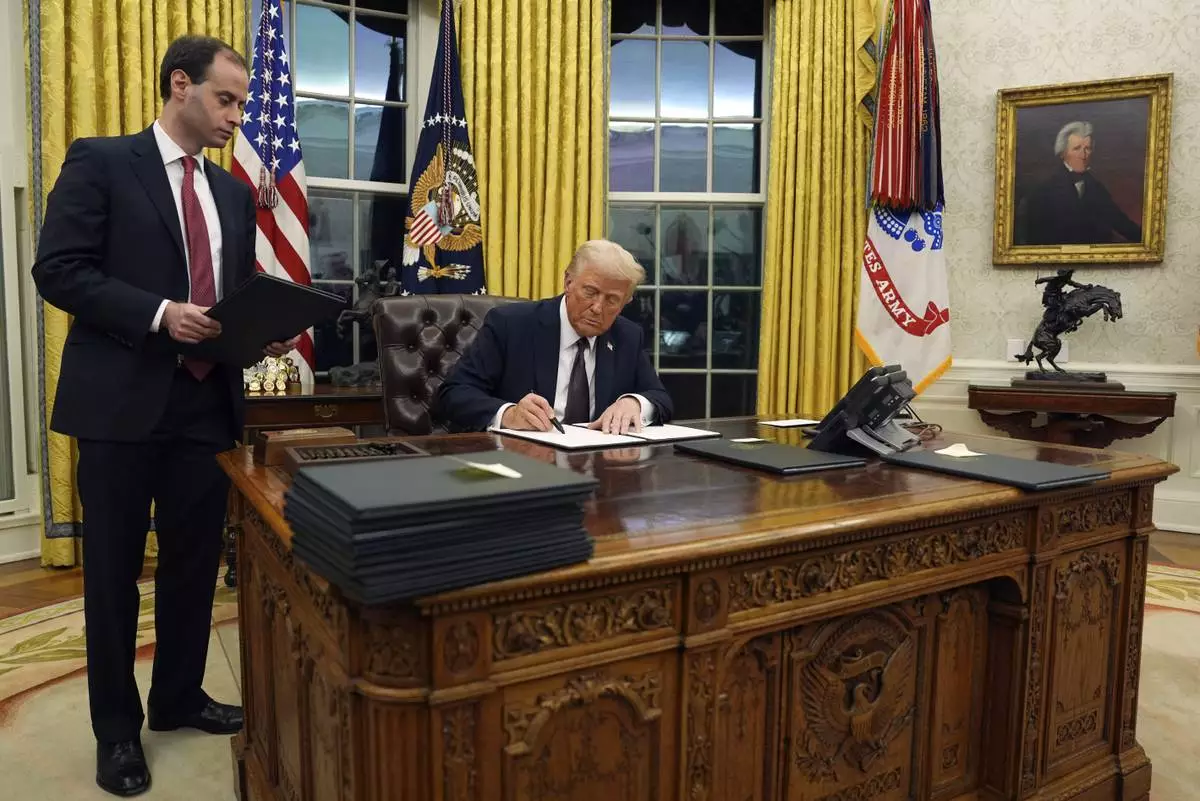
President Donald Trump signs an executive order withdrawing the U.S. from the World Health Organization in the Oval Office of the White House, Monday, Jan. 20, 2025, in Washington. (AP Photo/Evan Vucci)



